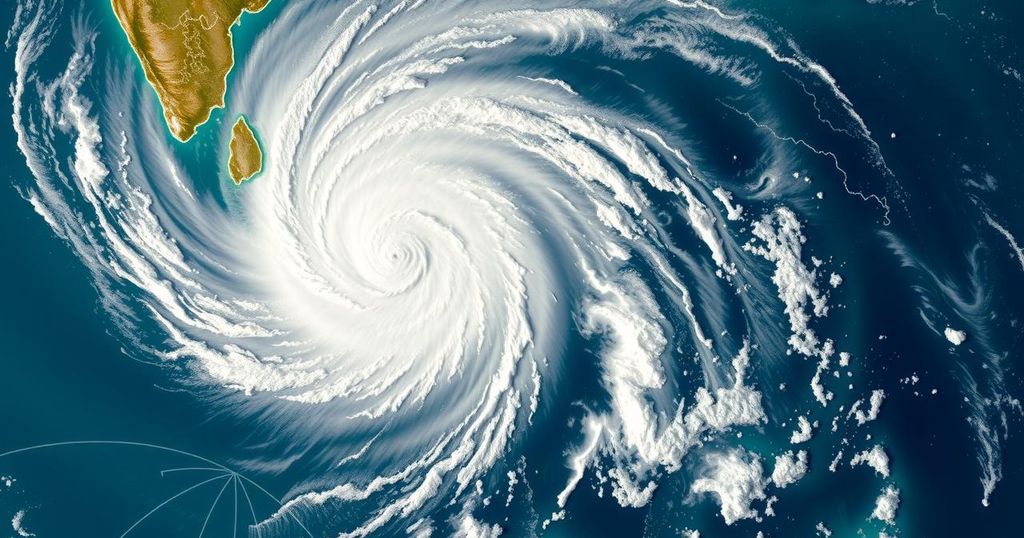Tropical Cyclone Chido: Widespread Impact and Humanitarian Response in the Southwest Indian Ocean

Tropical Cyclone Chido has caused significant destruction in the Southwest Indian Ocean, claiming at least 142 lives and injuring over 3,300 individuals. Madagascar, Comoros, Mozambique, and Malawi have been severely impacted, with massive damage to infrastructure and essential services, prompting an Emergency Appeal for humanitarian assistance and increased preparedness for future cyclones.
Tropical Cyclone Chido recently emerged as a significant and destructive force in the Southwest Indian Ocean, marking an early onset to what is expected to be an above-average cyclone season for the region. Intensifying into a category 4 system with maximum sustained winds of 220 km/h, Chido has caused widespread devastation since its peak on 11 December 2023. As of 22 December 2023, the cyclone has led to at least 142 confirmed fatalities—94 in Mozambique, 35 in Mayotte, and 13 in Malawi—along with over 3,300 reported injuries.
Madagascar bore the initial brunt of Cyclone Chido, which made landfall approximately 100 km from the Diana Region, affecting an estimated 135,838 individuals. Significant damage to infrastructure occurred, displacing numerous residents and inducing flooding that compromised agricultural ventures. Local authorities, with assistance from the Malagasy Red Cross, acted swiftly to warn communities of imminent danger, facilitating evacuations for those at risk.
In response to the cyclone’s passing on 14 December, the Comoros government declared a weeklong period of mourning. The cyclone’s impact extended to 64,167 residents of the islands of Anjouan and Moheli, where many families were left homeless. Additionally, various structures, including schools and housing, suffered substantial damage, particularly within the agricultural sector, where about 45 percent of crops were impacted.
The ramifications were similarly severe in Mayotte, where approximately 230,000 individuals—about 70 percent of the population—were significantly affected. The destruction of around 35,000 homes, coupled with damage to essential facilities such as the main hospital and airport, has hampered critical services and trade, leaving around 100,000 people temporarily housed in inadequate conditions across 70 centers.
In Mozambique, reports suggest that around 622,000 people have been affected, with Cabo Delgado province alone accounting for 509,800 individuals experiencing severe damage to their homes and vital infrastructure. Further assessments indicated that over 130,000 shelters were compromised, exacerbating existing vulnerabilities in widely impacted regions such as Tete, Nampula, and Niassa provinces.
Malawi faced challenges as well, with almost 45,000 people left stranded due to residual effects of Cyclone Chido, underscoring ongoing needs for disaster management and humanitarian assistance. Preliminary assessments are ongoing to ascertain the total devastation to infrastructure and agriculture, although the National Societies of the Red Cross and Red Crescent remain active on the ground, providing critical support through search and rescue, first aid, and family reunification efforts.
The extensive impact of Tropical Cyclone Chido highlights the essential need for preparedness and resilience in the face of increasingly intense tropical storms. This Emergency Appeal seeks to gather resources for the International Federation of Red Cross and Red Crescent Societies (IFRC) network to ensure the delivery of humanitarian assistance, while enhancing the readiness of National Societies and community volunteers to support vulnerable populations throughout the remainder of the cyclone season.
The Southwest Indian Ocean is prone to seasonal cyclones, with recent forecasts indicating an early start to what is projected to be an above-average cyclone season. Tropical Cyclone Chido marks an alarming escalation in cyclone intensity and frequency, further impacting regions historically vulnerable to severe weather events. The cyclone’s notable strengthening and destructive trajectory have raised concerns among meteorological agencies and humanitarian organizations, necessitating immediate response and support for the affected populations.
In conclusion, Tropical Cyclone Chido has unleashed unprecedented devastation across several nations in the Southwest Indian Ocean region, leading to significant loss of life and extensive damage to infrastructure and agriculture. A clear and coordinated response is vital to address the immediate needs of affected communities while highlighting the importance of preparedness and resilience in mitigating future storm impacts. Therefore, an Emergency Appeal has been launched to mobilize resources for humanitarian assistance and support recovery efforts in the wake of this disaster.
Original Source: reliefweb.int






